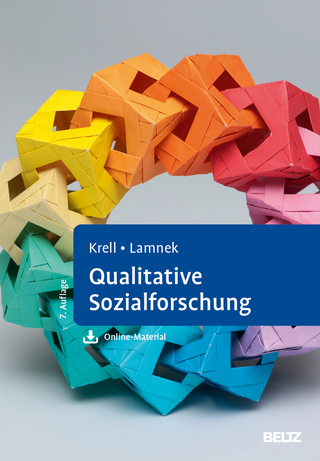
An Introduction to Islamic Psychology
Brill (Verlag)
978-90-04-50574-2 (ISBN)
Contemporary psychology is highly influenced by positivism and scientific naturalism. Psychological studies make efforts to control the variables and provide operational definitions of subjective constructs in order to reach the most concrete conclusions. Such efforts are admirable in natural sciences since they have led to a better life. But, this worldview has deprived contemporary psychology of more qualitative sources of knowledge like waḥy (revelation). The present book introduces Islamic psychology as a paradigm, which can apply waḥy knowledge and consider religious/spiritual dimensions of humans in scientific exploration. The first part discusses the possibility, foundations, and characteristics of Islamic psychology. The second part introduces research methodology in Islamic psychology. The third part reviews the Quranic theory of personality and highlights the concept of shakeleh. Finally, the fourth part presents the theories and methods of religious psychotherapy in the Islamic tradition. Each part provides introductory content for readers interested in Islamic psychology.
Mohammad Khodayarifard, Ph.D. (1999), University of Wollongong, is Professor of Clinical Child Psychology at the University of Tehran. He has published several books and articles on psychology of religion and spirituality, including “Abrahamic Religiosity Scale: development and initial validation”,Mental Health, Religion and Culture, (2018). Masud Azarbaijani, Ph.D. (2006), University of Qom, is Professor of Philosophy of Religion at the Research Institute of Hawzeh and University. He has published ca. 15 books and 50 scientific articles on psychology of religion, including Psychology in Nahj al-Balagha (2019). Rouhollah Shahabi, Ph.D. (2013), University of Tehran, is Assistant Professor of Educational Psychology at the Tehran Institute of Humanities and Cultural Studies. His research interests lie in cultural psychology. He has published a number of papers on religiosity and the relationship between religiosity and psychological factors. Saeid Zandi, Ph.D. (ABD), Allameh Tabatabaʿi University, is a research assistant at that university. His main interests lie in the fields of cultural psychology, positive psychology and cross-cultural research. He has also published articles on psychology of religion and religious psychology.
Foreword
Preface
Abstract
Keywords
1 Possibility, Foundations, and Characteristics of Islamic Psychology
2 Research Methodology in Islamic Psychology
3 Personality
4 Mental Disorders and Psychotherapy
Acknowledgments
References
| Erscheinungsdatum | 01.11.2021 |
|---|---|
| Reihe/Serie | Brill Research Perspectives in Humanities and Social Sciences / Brill Research Perspectives in Religion and Psychology |
| Verlagsort | Leiden |
| Sprache | englisch |
| Maße | 155 x 235 mm |
| Gewicht | 167 g |
| Themenwelt | Geisteswissenschaften ► Psychologie ► Sozialpsychologie |
| Geisteswissenschaften ► Religion / Theologie ► Islam | |
| ISBN-10 | 90-04-50574-1 / 9004505741 |
| ISBN-13 | 978-90-04-50574-2 / 9789004505742 |
| Zustand | Neuware |
| Haben Sie eine Frage zum Produkt? |
aus dem Bereich


